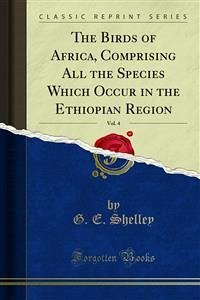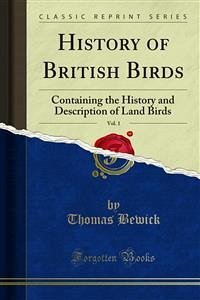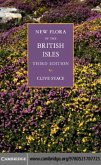Preface
For those who reside in the country and have both leisure and inclination to observe the movements and habits of birds, there is not a more entertaining occupation than that of noting the earliest arrival of the migratory species, the haunts which they select, and the wonderful diversity which they exhibit in their actions, nidification, and song.
There is something almost mysterious in the way in which numbers of these small and delicately formed birds are found scattered in one day over a parish where on the previous day not one was to be seen; and the manner of their arrival is scarcely more remarkable than the regularity with which they annually make their appearance.
That most of them reach this country after long and protracted flights, crossing the Mediterranean, the Bay of Biscay, and the English Channel is an undoubted fact. They have been seen to arrive upon our shores, and have been observed at sea during their passage, often at a considerable distance from land.
But how few of those who notice them in this country know where they come from, why they come, what they find here to live upon, how, when, and where they go for the winter!
In the following chapters an attempt has been made to answer these questions, and to give such information generally about our summer migratory birds as will prove acceptable to many who may be glad to possess it without knowing exactly where to look for it. Some of these sketches were originally published in the Natural History columns of “The Field” during the summer of 1871, and as a reprint has frequently been asked for, I have now carefully revised them and made some important additions and emendations, besides adding to the series a dozen or more chapters which have never before appeared.
The illustrations, from designs by Thomas Bewick, will, it is conceived, add considerably to the attractiveness of the volume, and will enable the reader to dispense with particular descriptions of the species, which it might be otherwise desirable to furnish. These may be found, moreover, in other works devoted to British Ornithology.
For those who reside in the country and have both leisure and inclination to observe the movements and habits of birds, there is not a more entertaining occupation than that of noting the earliest arrival of the migratory species, the haunts which they select, and the wonderful diversity which they exhibit in their actions, nidification, and song.
There is something almost mysterious in the way in which numbers of these small and delicately formed birds are found scattered in one day over a parish where on the previous day not one was to be seen; and the manner of their arrival is scarcely more remarkable than the regularity with which they annually make their appearance.
That most of them reach this country after long and protracted flights, crossing the Mediterranean, the Bay of Biscay, and the English Channel is an undoubted fact. They have been seen to arrive upon our shores, and have been observed at sea during their passage, often at a considerable distance from land.
But how few of those who notice them in this country know where they come from, why they come, what they find here to live upon, how, when, and where they go for the winter!
In the following chapters an attempt has been made to answer these questions, and to give such information generally about our summer migratory birds as will prove acceptable to many who may be glad to possess it without knowing exactly where to look for it. Some of these sketches were originally published in the Natural History columns of “The Field” during the summer of 1871, and as a reprint has frequently been asked for, I have now carefully revised them and made some important additions and emendations, besides adding to the series a dozen or more chapters which have never before appeared.
The illustrations, from designs by Thomas Bewick, will, it is conceived, add considerably to the attractiveness of the volume, and will enable the reader to dispense with particular descriptions of the species, which it might be otherwise desirable to furnish. These may be found, moreover, in other works devoted to British Ornithology.









